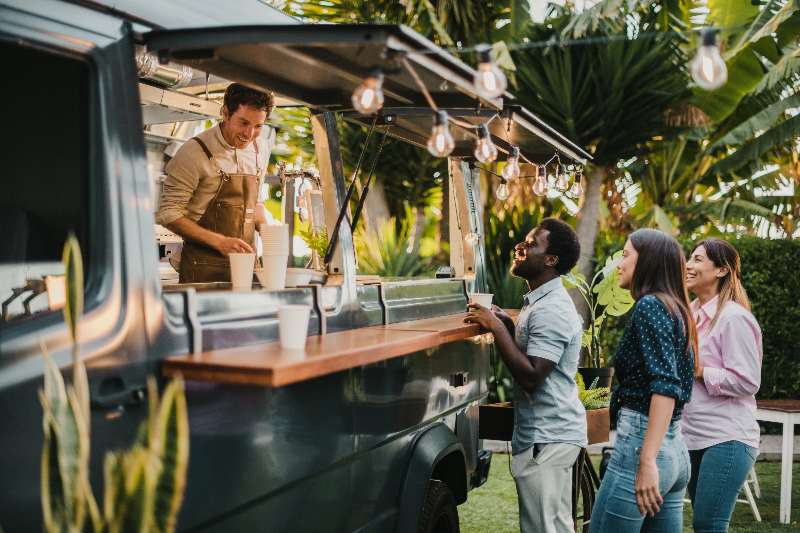
How to Start and Run a Successful Food Tours Business
A food tour business offers a guided tour for its participants to a variety of restaurants, food trucks, markets, and other food-related establishments. During the tour, a tour guide typically offers information about the history of the food/beverages being served, the culture behind it, the preparation process, and other details.
As we can see, a food tour business can be a fun business opportunity where we can help people experience new cuisine, as well as the culture behind it. Not to mention, the food tour industry is a blooming and growing one, with the global food tourism market expected to grow to $1.796 trillion by 2027 at a CAGR of 16.8% from 2020 to 2027.
Are you thinking of starting your own food tour business? Then you may want to consider the following benefits:
- Low start-up costs: Food tours are a relatively low-cost business to start, since you don’t need to invest in expensive inventory or equipment upfront.
- Low overhead: For starting a food tour business, you typically only need a small team and a relatively small office space. This will translate to a low overhead cost (i.e., rent.).

- High potential profit margins: Since the labor and food costs are relatively low while you can charge a premium for the food tour experiences, the food tour business can be lucrative.
- High demand: There is a high and still growing demand for food tour experiences all over the world.
- Low competition: At the moment, there is still not a lot of competition in the relatively new food tour industry. Meaning, there is still a fairly good chance of success.
In this article, we will discuss all you need to know about how to start and run your own successful food tour business. You’ll learn how to plan the business, operations, and logistics of the food tour business, how to do your marketing/branding, and more.
Without further ado, let’s get started.
The Business of Food Tours: Overview
A food tour is a guided tour that specializes in taking participants to culinary-related establishments, mainly restaurants, but also other establishments like food trucks, markets, and so on.
The food tour’s main highlight is obviously about taking the participants to taste delicious food, but it will also involve elements of storytelling like the information about the food’s history, culture, and how the food was prepared.
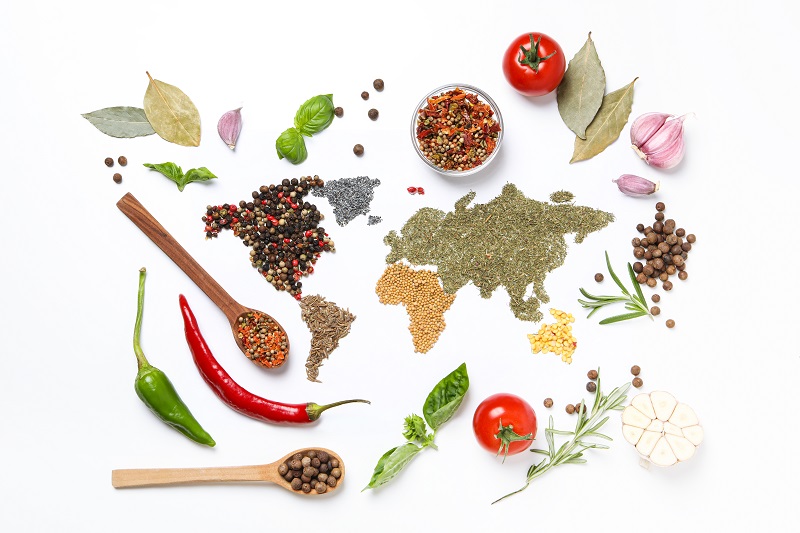
Food tours can vary widely in scope. It can be as small as short neighborhood walks or can be day-long excursions.
Identifying Your Target Market
Who should be the target market of your food tour business?
We can differentiate the main target market for food tour businesses into two main groups: locals looking for cuisine attraction and tourists:
- Tourists: Most likely, tourists will be the main target market of the food tour business. Tourists will typically be interested in finding a unique and memorable way to enjoy their vacation, including experiencing the authentic taste of the local cuisine and the culture behind it.
- Locals: While naturally, it will be rarer than tourists, locals may be interested in food tours for one reason or another. For example, there may be locals interested in exploring the hidden culinary gems in the city, new interesting ways to explore their city, or simply to meet new people.
However, besides these two main groups, you might also want to consider a number of niche markets as potential targets of the food tours, including:
- Vegan food tours: You can create specialized vegan food tours to cater to the growing demand for plant-based cuisine experiences.
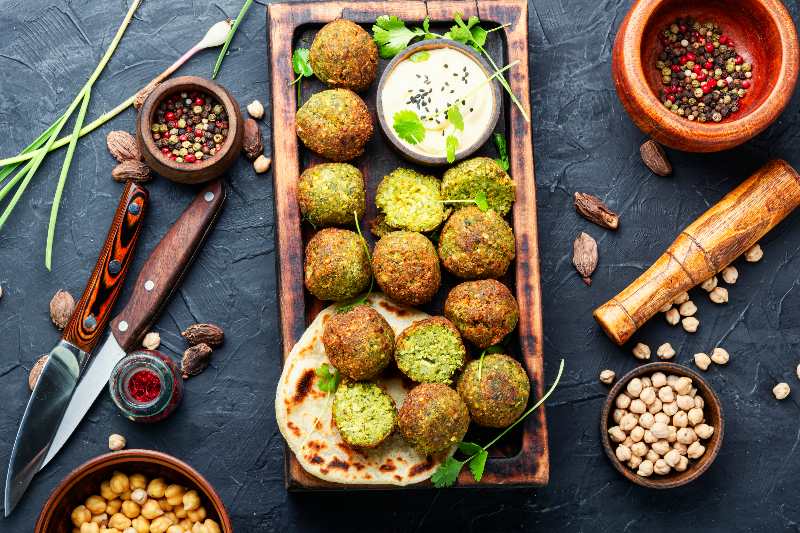
- Historical food tours: In this type of food tour, the tour guide can provide historical information about the food being served, blending the cuisine experience with storytelling.
- Cultural food tours: Exploring the diversity of the place’s culinary traditions and their cultural significance. For example, you can highlight various ethnic cuisines in a particular city.
3. Competitive Analysis: Identifying and Analyzing the Competition
By now, you should have a pretty good understanding of your food tour business’s target market, and the next step is to identify your competition.
You can do online research for food tours in your city/area, visit local tourism offices (or visitor centers), or ask your friends/family/colleagues for any food tours they know.
Consider the following:
- SWOT analysis: Study existing food tour businesses in your city (or the desired location you are going to open your business in.) Especially analyze successful food tours and identify their strengths and weaknesses.
- Customer reviews: Analyze customer reviews on various platforms to understand the strengths of your competitors, as well as what can be improved.

- Pricing strategies: Collect data on how much your competitors price their food tours. This can help you decide on a competitive pricing strategy.
- Tour formats: Analyze the different food tour formats they offer to help you develop your own.
Identifying and understanding the strengths and weaknesses of your competitors can help you build a unique food tour business that can differentiate itself from the competition. Here are some differentiation strategies you can consider:
- Unique themes: Offer distinct tours with unique themes or stand-out experiences that cater to a specific niche market.
- Exclusive partnerships: You can collaborate with local restaurants, food trucks, or markets for exclusive dishes or tasting sessions.
- Engaging guides: Well-trained, knowledgeable, and fun tour guides who can offer a memorable experience can be a great selling point for your food tour business.
- Personalization: You can offer customizable or personalized tours for special occasions or private groups with specific needs/preferences.
- Pricing: This is pretty self-explanatory. Offering your food tours at a competitive price can be a great differentiation strategy.

Understanding your target market and competition, and defining a strong food tour concept, will be your most important foundation in building a successful food tour business. In the next section, we will discuss the rather challenging process of planning your food tour business.
Planning Your Food Tour Business
Carefully planning your food tour business is a very important step towards success.
We will explore several key elements of planning a food tour business, including planning an interesting tour itinerary, budgeting/financial planning, as well as legal considerations (i.e., required permits.)
Let’s get started!
Crafting an attractive food tour itinerary
For a food tour business, the tour itinerary is literally what makes or breaks the business’s success. It is what will make your food tours attractive to your target audience, so careful planning is critical.
You can plan a captivating food tour itinerary by following these steps:
- Choosing the right food tour destinations
The first and arguably the most important step in planning your itinerary is finding the right culinary destinations for the food tours.
The right destination will depend on your target market and the type of tour formats you are planning to offer.  Consider the following:
Consider the following:
- Uniqueness: Spend some time scouting for diverse, unique, and authentic culinary destinations that can showcase the local culture of the area.
- Variety: Add some diversity to your food tours by mixing and matching fine dining, street food, and hidden gems, so you can cater to the different tastes of your target audience.
- Accessibility: It’s important to make sure that the destinations are easily accessible to ensure convenience in delivering optimal experiences for all participants.
- Planning the storytelling aspect
Once you’ve built your list of potential destinations, the next step is to plan the storytelling aspect of the tour:
- Engaging stories: Identify any engaging stories about the culture and history behind the dishes. Plan how to train your guides on how to share these stories.
- Interactive elements: Are there any interactive or hands-on experiences you can incorporate in your tours? (i.e., cooking demos, cooking classes, visits to food markets, etc.).
- Timing: Consider how long the tour will take for each dish. Make sure to pace the tour effectively, so participants have enough time to enjoy the dish and immerse themselves in the storytelling aspect of the tour.
Budgeting and Financial Planning
1. Initial Investment
The start-up capital for a food tour business can vary depending on the size and scope of the food tour offered (and the business itself), as well as the location where you’re planning to host your tours.

Yet, the typical startup capital for a food tour business would range between $5,000 and $20,000, with the following main expenses:
- Vehicle: You may or may not need to purchase or rent transportation. If you do, consider the associated costs.
- Licensing: You may be legally required to obtain permits or licenses, and the cost may vary depending on your local jurisdiction.
- Insurance: Even if getting insured is not a legal requirement, you will need to obtain insurance to protect your business and yourself from accidents or in case of an injury.

- Equipment: You will need to purchase supplies and equipment to start the business, such as tour guide kits, tasting utensils, audio systems, etc.
- Marketing and advertising: the costs required for creating and distributing promotional materials such as brochures, flyers, etc., as well as the costs of online advertising and promotions.
2. Ongoing costs
In addition to the initial startup costs, you will need to factor in the ongoing costs for your day-to-day operations, such as:
- Staffing: If you plan to hire staff (including tour guides), you will need to estimate the cost of salaries and benefits.
- Food costs: The expenses for sampling foods and the costs for meals provided during the food tour.
- Maintenance: Budget for any maintenance, repairs, or upgrades for your equipment, including vehicle maintenance (if any.)
Marketing and Branding The Food Tour Business
Building a Compelling Brand Identity
A strong brand identity is critical for any business, but arguably it’s even more important for a food tour business, where it can be difficult to differentiate itself from its competitors.

Here are some tips for building a strong and compelling brand identity to help you attract customers:
- Have a business name, slogan, and logo that are easy to remember and relevant to your business. Your name should be easy to pronounce and remember, and your logo should support it. Your slogan should be easy to understand, short, and catchy.
- Have a consistent brand style across all marketing channels. This includes your website design, social media presence, and all other marketing materials. Choose a visual style and color palette that resonates with your brand’s narrative and your target audience. Make sure your brand’s aesthetics align with the narrative.
- Be genuine and authentic. Your target market can spot inauthenticity from miles away, so make sure your brand reflects your personality, your passion for food (and tourism), and your values.
Establishing a Strong Online Presence
In today’s digital era, having a strong online presence is simply a must for any business, and we should focus on four main areas:
Having a professional website
Your website is both your business card and your digital storefront. It’s critical to have a website that:
It’s critical to have a website that:
- Looks professional with high-quality photos and videos of your tours.
- Easy to navigate with a well-designed layout and menu.
- Mobile-responsive and loads fast.
- Informative. Must include all the necessary information about your food tours and your business.
- Has a reliable and functional online booking system. Integrate an efficient wine tour booking system for seamless online booking and scheduling.
- Optimized for SEO to improve visibility and discoverability.
Fortunately, today it’s much easier and affordable to build a professional-looking website with 24/7 online booking functionality with platforms like Wix, Squarespace, or WordPress, among others.
Strong social media presence
Leverage social media platforms like Instagram, Twitter, Facebook, TripAdvisor, and Yelp, among others, to promote your food tours and connect with potential customers.

Consider:
- Post regularly and actively engage with your followers. Promptly respond to followers’ inquiries, comments, questions, and feedback, including negative feedback.
- Share high-quality photos and videos of your tours, foods, and happy tour participants on social media.
- Frequently share tour updates as your main form of content.
- Encourage satisfied tour participants to post on social media or leave positive reviews on Yelp, TripAdvisor, or other platforms that enable reviews.
- Consider investing in paid advertising options offered by these social networks (i.e., Facebook Ads, Instagram Ads) to amplify your reach and visibility.
Local SEO
Local SEO is, simply put, ensuring your target audience can find your business when they are Googling for queries like “food tours in (city name)” or “food tours near me.” When you are visible for these queries, this means you are reaching a highly relevant target market who are already interested in your services.

While local SEO might seem overwhelming at first, we can implement it in just a few key steps:
- Claiming and verifying Google Business listing:
- The first thing you should do is to claim a Google Business listing.
- Make sure to verify your listing. Typically, this will involve Google sending a postcard to your physical address containing a PIN you can use to verify the account.
- Optimizing your listing:
- Optimize the listing by including detailed information, including business name, website URL, address, phone number, and other relevant details.
- You can use target keywords naturally but focus on providing accurate and complete information for potential customers.
- Add high-quality photos and relevant images of your tours, food, and happy participants.
- Building citations:
- Build citations on relevant online directories, and aim to get high-quality backlinks from relevant websites such as local tourism boards, event websites, food bloggers, etc.
- Make sure that your business information remains consistent across all listings and online directories, especially your NAP (Name, Address, Phone Number) information.
- Getting reviews:
- Encourage satisfied tour participants to leave reviews on Google Maps, but also on other relevant platforms like TripAdvisor, Yelp, Facebook, and others.
- Promptly respond to reviews, including and especially negative ones. Responding to a review shows that your business is committed to customer satisfaction and may encourage more people to leave their reviews.
Do these four steps consistently, and you’ll see your business listing slowly but surely climb the Google Maps ranking for relevant queries.
Online Booking
Having a functional and reliable online booking system on your food tour website is critical for several reasons:
- Convenience: Enabling 24/7 online booking provides convenience for potential tour participants, so they can book their tours anytime, anywhere, and from any device. It also makes it easier for the food tour business to manage their tour schedules and bookings.
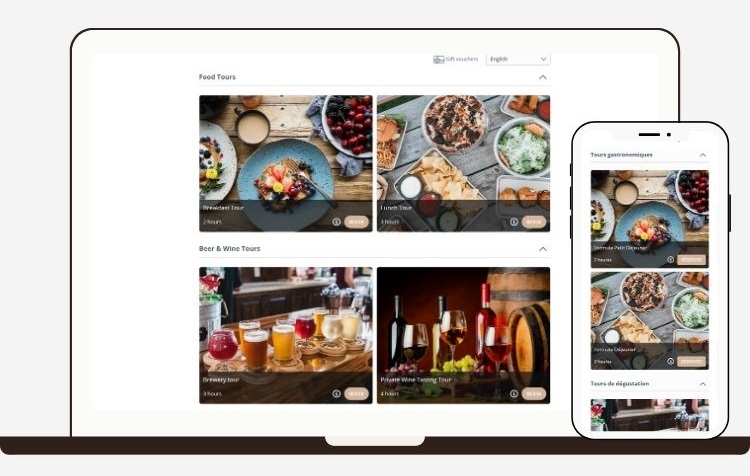
- Efficiency: A reliable online booking system like Bookeo can help you to streamline the booking process and prevent double-booking and other human errors. In the long run, this can save you time and money and help your food tour business provide a better customer experience.
- Data collection: With an online booking system in place, you can automatically collect valuable customer data. You can then use this data to make more informed decisions, optimize your tours, and improve your marketing initiatives.
Ensuring Optimal Operations and Logistics
Hiring and Training Tour Guides
The skills and experience of your tour guides will be one of the most important factors determining your business’s success. Thus, careful hiring and training of your tour guides is very important.
Consider the following tips:
- Knowledge of local cuisine: Your tour guides should possess an in-depth understanding of the city’s local cuisine, which includes popular restaurants, traditional dishes, and hidden gems.
- Engaging narration: The tour guides should have the ability to entertain tour participants about the history, culture, preparation of the dish, and the anecdotes behind each dish.
- Continuous learning: Find tour guides who are willing to stay up to date with the latest food trends, including new restaurants/dining establishments, new customer habits, etc.
- Regular workshops: Conduct regular training workshops, not only to improve the tour guides’ skills, but also to keep them engaged and enthusiastic.
Excellent Customer Service
Providing excellent customer service is also critical for your food tour business’s success, and here are a few tips:
- Responsive: Make sure to be responsive to customer inquiries, be it via live chat on your website, email, social media DMs/comments, phone, or others. Aim to respond to all inquiries within 24 hours, but make sure to answer everything professionally.
- Be polite: Maintain professionalism when communicating with customers. Thank them for their feedback (even if it’s a negative one), and let them know that their feedback is important for your business.
- Analyze: Analyze customer feedback regularly. Try to identify trends and patterns in the feedback, which may help you identify areas where you can improve your business or your tours.
- Take action: Don’t just answer questions and inquiries. If there are any issues frequently mentioned by your customers, take the necessary steps to fix them. Implement changes based on customer feedback, so you can gradually improve your tour experience.
Scaling Your Food Tour Business
Now that you have your food tour business up and running, the next step is to find ways to scale the business.
Basically, you can scale the food tour business in several ways: expanding your tour offerings, expanding into new markets, or collaborating with other businesses.
Expanding Tour Offerings
You can expand your tour offerings in several ways:
- Offering themed tours
- Culinary adventure: Offering themed tours to explore particular culinary niches, such as desert-only, steaks, wine and cheese, etc.
- Historical journeys: Combining food experience with history storytelling. You can guide participants to visit historical restaurants or even non-culinary historical sites in the city while enjoying local delicacies.
- Holiday specials: Holiday-themed tours, like Halloween-themed or Valentine’s Day special tours. Incorporate festive elements and holiday-specific cuisines to make your tours interesting.
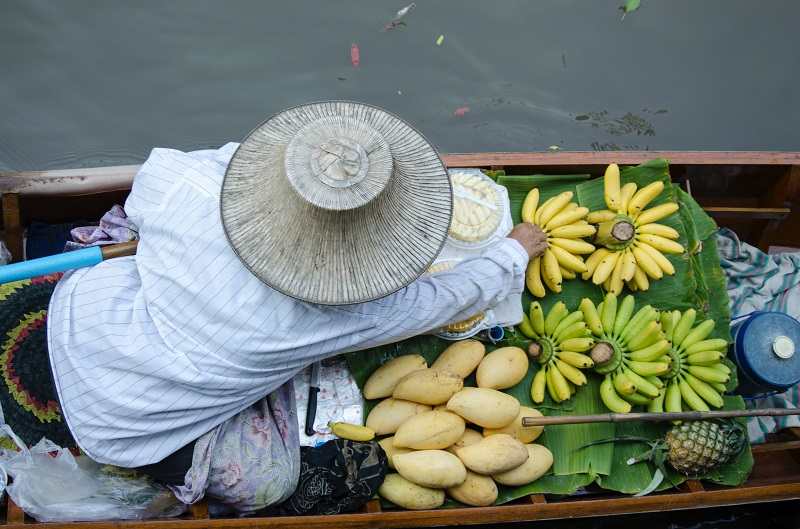
- Seasonal tours
- Festival tours: Guided tours during local food festivals or other seasonal events.
- Farm-to-table: Food tours highlighting locally sourced, the freshest ingredients available in the season. For example, you can visit markets and local farms.
- Holiday seasonal tours: Design seasonal tours that celebrate holiday-specific flavors, such as ice cream-specific tours in the summer or pumpkin spice during the fall.
- Private tours
- Group tours: You can offer tours for families or groups of friends
- Corporate tours: Offer customizable tours for businesses, for example, to help them entertain employees or their clients.
Collaboration and Partnerships
Another great way to scale your business is to collaborate and partner with other businesses in your area, for example:
1. Partnering with local restaurants and vendors
- Exclusive partnerships: Partner with local restaurants, food producers, markets, or breweries, so they can offer exclusive tastings, behind-the-scenes access, and other special treats.
- Cross-promotions: Collaborate with other businesses to promote each other through cross-marketing initiatives (i.e., joint events.)
- Discounts and packages: Create attractive discount and package deals by partnering with other businesses (i.e., with popular local restaurants) to attract more tour participants.
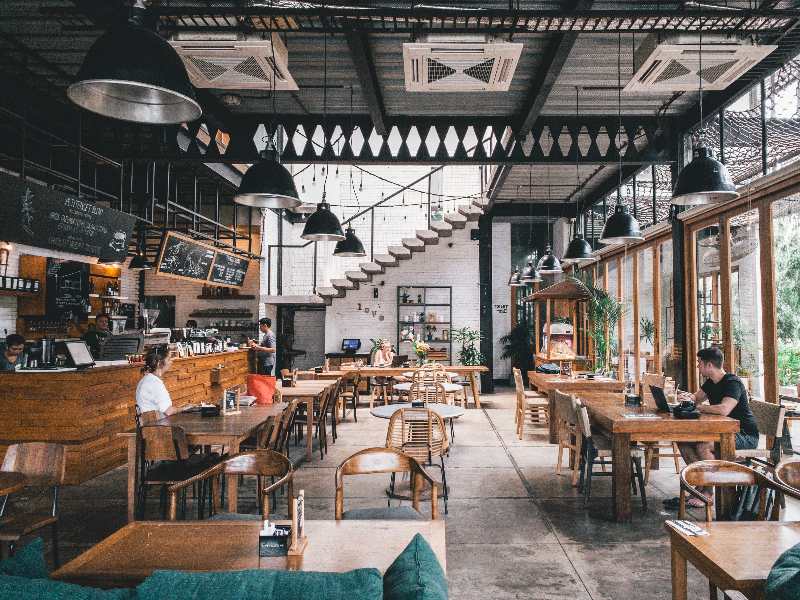
2. Partner with other tour operators: Partnering with non-competing local tours (i.e., those who don’t offer food tours) could help you reach a wider audience.
- Affiliate marketing strategies
You can potentially generate more leads and sales by launching affiliate programs, where you offer commissions on bookings for other local businesses (or individuals) that promote your tours.
Besides local businesses, you can also offer affiliate opportunities to food bloggers, travel bloggers, and other local influencers who can promote your tours on their platforms.
International Expansion Opportunities
You can also consider expanding the food tour business into international markets. You can follow these steps:
- Researching new markets
Conduct thorough market research to identify locations with a growing food tourism industry and cities/countries with large enough potential markets.

Before delving into these new markets, make sure to first gain an understanding of the local cuisine, culinary traditions, culture, and preferences of this potential new market.
- Adapting to cultural differences
When expanding your food tour business to other cities or countries, you may need to adapt your formats and itineraries to cater to local preferences. This includes considering local traditions, customs, and dietary preferences.
Also, make sure to find capable local tour guides or train your existing guides, so they can communicate effectively in the local language and/or dialect. Consider providing multilingual tours to expand your reach.
When interacting with local businesses (restaurants, vendors, etc.) and customers, make sure to adhere to and respect cultural etiquette and norms.
Scaling your food tour business allows you to reach a broader audience and grow your potential revenue. Yet, you’ll need to carefully plan your expansion to increase the chance of success. There may be challenges along the way, but with proper planning and persistence, you can stay competitive in the ever-evolving landscape of food tourism.
Conclusion
In this guide, we have covered the essential steps to start and run a successful food tour business, from defining your concept to researching your target market to marketing your food tour business.
By now, you should have a solid foundation on how to plan and run your own successful food tours, which can be both an exciting and lucrative journey.
If you are passionate about food, travel, or both, starting a food tour business could be perfect, and we encourage you to try Bookeo. Bookeo is a powerful online tour booking solution that can help you streamline your food tour scheduling and day-to-day operations, so you can provide a better experience for your tour participants.
Sign up for a free trial of Bookeo, and check out how it can help you to start a successful food tour business journey today.

